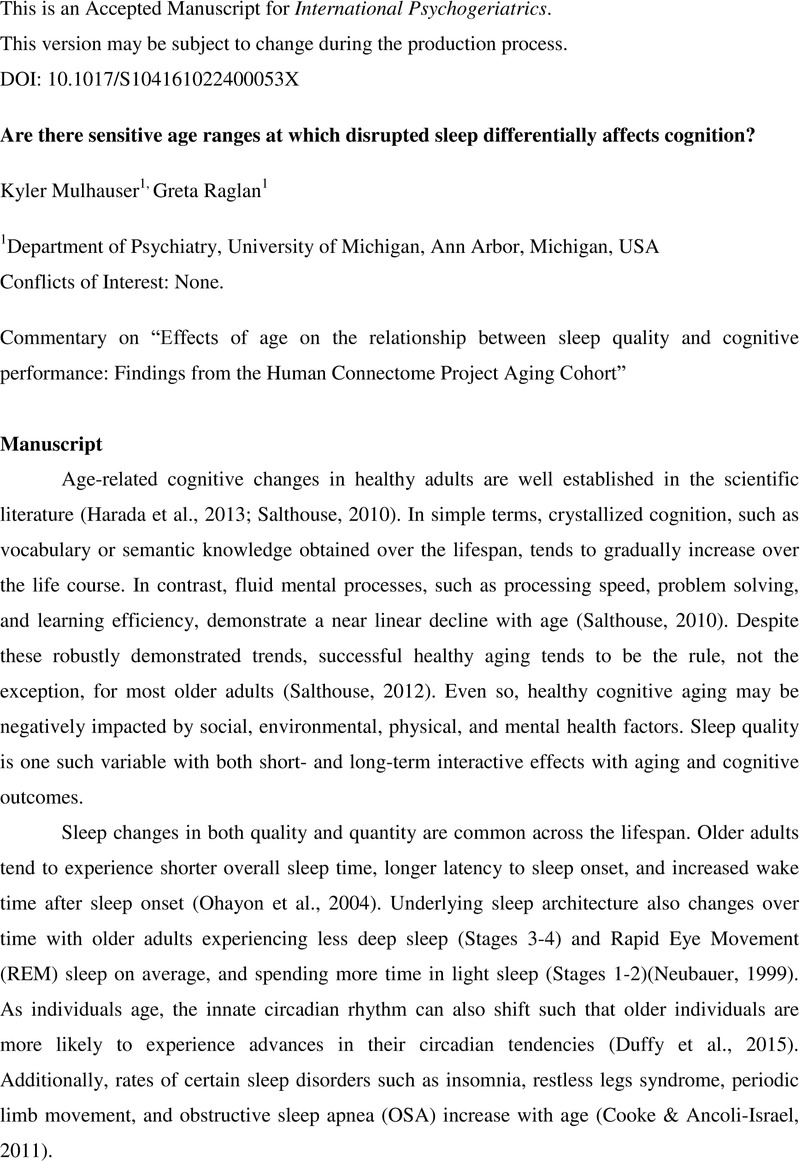No CrossRef data available.
Commentary on “Effects of age on the relationship between sleep quality and cognitive performance: Findings from the Human Connectome Project Aging Cohort” by Cohen et al.
Published online by Cambridge University Press: 31 May 2024
